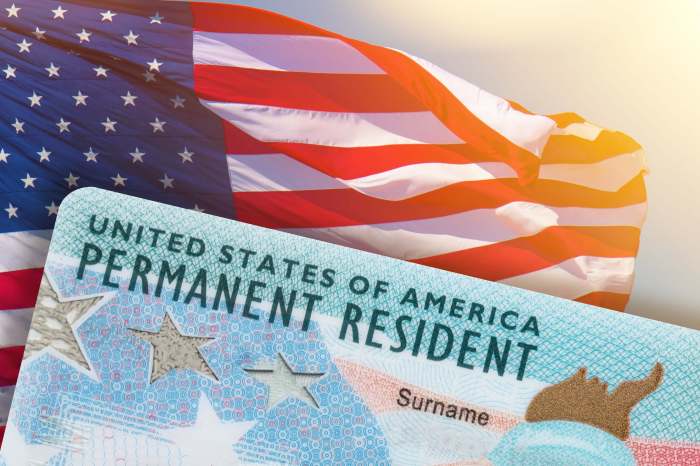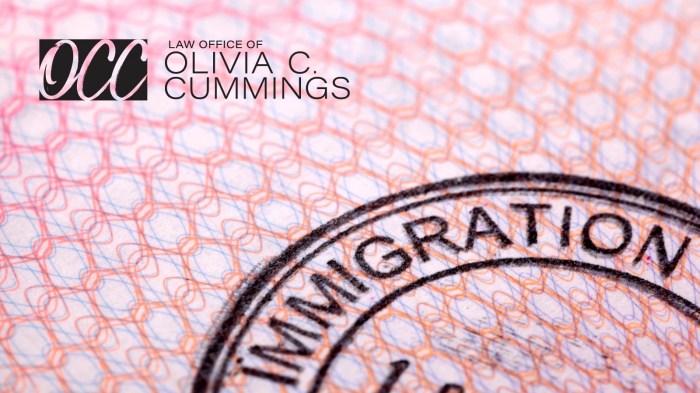Can I travel internationally while my I-751 is processing? This is a crucial question for many green card holders, and the answer isn’t always straightforward. Navigating international travel while your I-751 (application to remove conditions on residence) is pending involves understanding potential restrictions, exploring options like Advance Parole, and carefully planning your trip to avoid complications. This guide will help you understand the process and make informed decisions.
The I-751 process itself can take several months, even years, depending on various factors including the USCIS processing center handling your case and any additional requests for evidence. During this waiting period, leaving the US could potentially jeopardize your application. However, with proper planning and possibly obtaining Advance Parole, international travel is often possible. We’ll break down the steps involved, explore the potential risks and benefits, and provide practical advice to help you prepare.
Understanding the I-751 Process

The I-751, Petition to Remove Conditions on Residence, is a crucial step for green card holders who obtained conditional permanent residency through marriage. Understanding the process, its timelines, and potential influencing factors is vital for a smooth transition to unconditional permanent residency. This section will Artikel the key stages and considerations involved.
Stages of the I-751 Process
The I-751 process generally involves several key stages. First, you’ll need to gather all the necessary documentation, which can include your marriage certificate, joint tax returns, photos, and evidence of your shared life. Next, you will complete and file Form I-751 with the United States Citizenship and Immigration Services (USCIS). USCIS will then review your application, potentially requesting additional evidence.
Finally, if approved, you will receive your unconditional green card. If denied, you will have the opportunity to appeal. The specific steps may vary slightly depending on individual circumstances.
Typical Processing Times for I-751 Applications
Processing times for I-751 applications vary significantly. USCIS provides estimated processing times on their website, but these are just averages and can fluctuate due to various factors. Currently, you should expect processing times to range from several months to over a year, or even longer in some cases. It’s crucial to check the USCIS website for the most up-to-date processing time estimates for your specific filing location.
Factors Affecting I-751 Processing Time
Several factors can influence the processing time of your I-751 application. These include the completeness and clarity of your application, the volume of applications the USCIS service center is currently processing, and whether USCIS requests additional evidence (a Request for Evidence or RFE). A complex case with significant documentation or issues may take longer. Furthermore, the specific USCIS service center handling your application can also impact processing time, as some centers have larger backlogs than others.
For example, a case involving allegations of fraud or significant inconsistencies in the provided documentation will almost certainly take longer to process.
I-751 Processing Times by Service Center (Estimates)
It’s important to note that these are average processing times and can vary greatly. These figures are estimates based on publicly available information and anecdotal evidence and should not be considered guaranteed processing times. Always refer to the official USCIS website for the most current processing time information.
| Service Center | Average Processing Time (in months) | Notes | Example Case |
|---|---|---|---|
| Nebraska Service Center | 12-18 | Often cited as having longer processing times. | A couple with a straightforward application and strong evidence might still experience delays due to high case volume. |
| California Service Center | 9-15 | Processing times can fluctuate depending on workload. | A case involving a minor child might see faster processing due to prioritization. |
| Texas Service Center | 10-16 | Similar to other centers, workload greatly influences processing times. | A case with missing documentation resulting in an RFE would add significantly to the overall processing time. |
| Vermont Service Center | 8-14 | Generally considered to have faster processing times, but this can still vary. | Even with a complete application, unforeseen delays are always possible. |
Travel Restrictions While Awaiting I-751 Approval
Applying for the I-751, the petition to remove conditions on your green card, is a crucial step in your immigration journey. However, it’s a period where you need to be particularly mindful of your travel plans, as international travel can significantly impact your application’s processing. Understanding the potential restrictions and risks is essential to avoid complications.International travel while your I-751 is pending carries inherent risks.
The most significant risk is that leaving the US could be interpreted as abandoning your application or demonstrating a lack of intent to remain in the United States, potentially leading to a denial of your petition. This is because the I-751 assesses your bona fide marriage and your continued residence in the US. Extended absences can raise red flags and make it harder to prove your continuous residency requirement.
Potential Consequences of Unauthorized Departure from the US
Leaving the United States without prior approval from USCIS while your I-751 is pending can have serious consequences. USCIS officers might view your departure as evidence that you don’t intend to remain in the US, thus jeopardizing your chances of approval. In some cases, this could even lead to the denial of your I-751 application, requiring you to reapply and potentially facing further delays.
Furthermore, re-entry into the US could become problematic, requiring additional documentation and potentially facing lengthy delays at the border. A denied I-751 application can impact your future immigration status, making it more difficult to adjust your status or obtain permanent residency. Therefore, planning any international travel carefully and consulting with an immigration attorney is highly recommended.
Scenarios Where International Travel Might Be Permissible
While generally discouraged, there might be exceptional circumstances where international travel is permissible while your I-751 is pending. For example, a pre-planned and essential trip, such as attending a close family member’s funeral or a critically ill family member’s bedside, might be considered acceptable. However, it’s crucial to thoroughly document the reason for travel and provide supporting evidence to USCIS if requested.
Additionally, obtaining an advance parole document before traveling is strongly advised. This document explicitly grants permission to leave the US and return without jeopardizing your immigration status. Seeking legal counsel is essential in these situations to navigate the process effectively and minimize potential risks. The attorney can help you prepare the necessary documentation and advise on the best course of action.
Advance Parole and Travel Authorization: Can I Travel Internationally While My I-751 Is Processing

So, you’re waiting for your I-751 to be approved, and you need to travel internationally. Don’t panic! While traveling while your I-751 is pending can be tricky, Advance Parole can be your solution. This document allows you to leave the United States and return without jeopardizing your green card application. Let’s break down what you need to know.Advance Parole is a travel document issued by United States Citizenship and Immigration Services (USCIS) that grants permission to re-enter the country after international travel while an immigration application is pending.
It’s essentially a temporary authorization to travel, specifically designed for individuals whose immigration status is uncertain. Without it, leaving the country while your I-751 is pending could significantly complicate your case, potentially leading to difficulties re-entering the U.S.
Advance Parole Requirements
To be eligible for Advance Parole, you must meet specific criteria. These generally include having a pending I-751 application, maintaining a clean criminal record, and demonstrating strong ties to the United States. USCIS will carefully review your application to ensure you meet these requirements. Providing thorough and accurate documentation is crucial for a successful application. Failure to meet these requirements can lead to denial of your application.
The Advance Parole Application Process
Applying for Advance Parole involves completing Form I-131, Application for Travel Document, and gathering supporting documentation. This includes evidence of your pending I-751 petition, proof of identity, and evidence of your ties to the United States (like employment, property ownership, or family ties). You’ll need to submit this along with the appropriate filing fee. The processing time can vary, so it’s essential to apply well in advance of your planned travel.
Comparing Advance Parole with Other Travel Authorization Options, Can i travel internationally while my i-751 is processing
While Advance Parole is a common option for those with pending I-751 applications, it’s not the only one. Some individuals may be eligible for other travel documents depending on their specific circumstances. However, Advance Parole is specifically designed for individuals with pending adjustment of status applications, making it the most suitable option in this context. Other options might involve different application processes and requirements, and may not be applicable to your situation.
Therefore, Advance Parole is often the most practical and straightforward solution for those with a pending I-751.
A Step-by-Step Guide to Applying for Advance Parole
- Gather Necessary Documents: Collect all required documents, including Form I-131, evidence of your pending I-751, proof of identity (passport, driver’s license), and evidence of ties to the U.S. (employment letters, tax returns, mortgage statements, etc.).
- Complete Form I-131: Carefully fill out Form I-131, ensuring accuracy and completeness. Any inconsistencies or omissions can lead to delays or denial.
- Pay the Filing Fee: Submit the required filing fee with your application. Check the USCIS website for the most up-to-date fee information.
- Submit Your Application: Mail your completed application and all supporting documents to the designated USCIS address. Keep a copy of everything for your records.
- Track Your Application: Use the USCIS online tracking system to monitor the status of your application.
- Receive Your Advance Parole Document: Once approved, you’ll receive your Advance Parole document. Keep this document safe and carry it with you when you travel internationally.
Successfully navigating international travel while your I-751 application is pending requires careful planning, a thorough understanding of the regulations, and potentially, the assistance of an immigration attorney. Remember, proceeding without Advance Parole carries significant risks. By understanding the process, gathering the necessary documentation, and preparing for potential delays, you can significantly increase your chances of a smooth and successful trip without jeopardizing your residency status.
Don’t hesitate to seek legal counsel to ensure you’re making the best choices for your specific situation.
FAQ Section
What happens if I travel internationally without Advance Parole and my I-751 is denied?
This could significantly complicate your immigration status, potentially leading to deportation. It’s strongly advised to avoid international travel without proper authorization.
How long does it take to get Advance Parole?
Processing times vary, but expect several months. Apply well in advance of your planned travel.
Can I re-enter the US after traveling with Advance Parole?
Yes, provided your Advance Parole is approved and you present it at the border along with other required documents.
What if I have an emergency and need to travel internationally unexpectedly?
Consult an immigration lawyer immediately. They can advise you on the best course of action and help mitigate potential risks.

